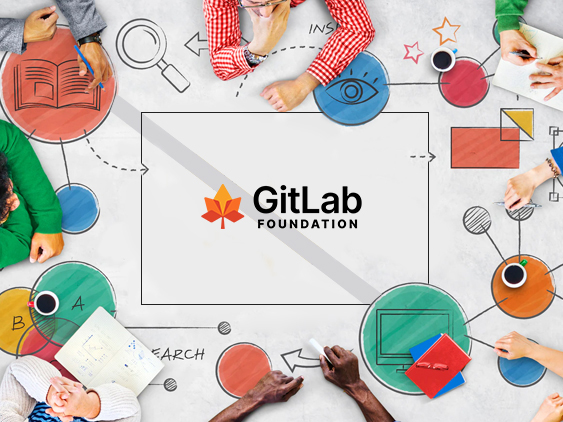GitLab Foundation Makes its First Grant to Help Job Seekers and Employers Make Sense of Postsecondary Credentials
$2.9M grant for Jobs for the Future and the Burning Glass Institute to expand Educational Quality Outcomes Standards as a tool to help workers, learners, employers, and policymakers make sense of rapidly growing landscape of postsecondary credentials
The GitLab Foundation—formed by GitLab, Inc to improve people’s lifetime earnings globally through access to opportunities has announced its first major grant of $2.9 million to national nonprofit Jobs for the Future (JFF) in collaboration with the Burning Glass Institute.
The grant will be used to significantly expand the Educational Quality Outcomes Standards (EQOS) framework to measure education and training programs based on employment and earnings outcomes. JFF and the Burning Glass Institute will work together to incorporate new measures of racial, gender, and income equity—and create consumer and employer friendly applications that make it easier for job seekers and employers in the U.S. to assess a wide variety of education and training programs.
Recommended: Tips For Managing A Successful Remote Workforce In 2023 And Beyond
“Access to education and training helps workers build new skills and advance in their professional lives, driving income growth and economic mobility,” said Ellie Bertani, CEO of the GitLab Foundation. “However, not all programs and credentials are created equally, and precious resources are wasted by learners and employers if they don’t have access to reliable, data-backed insights tied to clear outcomes. Our collaboration with JFF and the Burning Glass Institute aims to increase transparency across credential programs in the US and help learners and employers make more informed decisions.”
The announcement comes at a time when persistent talent shortages highlight fundamental inefficiencies in the labor market. In the absence of a validated means for candidates to signal their skills, many employers have clung to degree requirements. That’s starting to change: Burning Glass Institute research indicates that the prevalence of degree requirements has dropped 14% since 2017. However, the lack of an effective credentialing infrastructure is slowing the progress of the skills-based hiring movement.
“We’re seeing an increased interest in and recognition of the powerful role that career-focused training programs can play in helping working adults in low-wage jobs chart pathways to family-sustaining careers, quickly,” said Maria Flynn, CEO and president of Jobs for the Future. “EQOS has offered providers and policymakers an important framework for defining quality outcomes. Now, through the support of the GitLab Foundation and in collaboration with the Burning Glass Institute, we turn our attention to offering learners and employers greater transparency as they navigate the myriad of postsecondary options available.”
With new support from GitLab Foundation, the Burning Glass Institute and JFF will team up to help workers, learners, and employers make sense of this fragmented education and training marketplace through a common set of metrics around career placement and earnings. The collaboration will bring together JFF’s extensive network of experts and partners with Burning Glass Institute’s capabilities in developing innovative data models for measuring outcomes, mobility, opportunity alignment, and career resilience at scale. The two organizations will build on the existing EQOS framework and research base—and utilize JFFLabs, JFF’s innovation lab, to incubate and build consumer-facing tools that share accurate information on the economic return from short-term education and training programs.
Recommended: From Vision To Reality: 10 Essential Strategies For Launching And Running A Successful Business
“Today’s learners, workers, and employers must navigate a vast maze of postsecondary education and training options, often with scant information on the cost or economic payoff,” said Matt Sigelman, president of the Burning Glass Institute. “Getting data to the frontlines of the education and training marketplace is critical. This is about helping workers get the outcomes they’re looking for and about giving employers more efficient ways of finding the talent they need.”
Acquired by JFF in 2022, EQOS was originally an outgrowth of the U.S. Department of Education’s EQUIP program. The outcomes-based quality standards were developed by a task force composed of postsecondary education leaders and policymakers, including author and higher education expert Michael Horn, former U.S. Under Secretary of Education and current American Council on Education President Ted Mitchell, former White House policy advisor John Bailey, and former North Carolina Governor Beverly Perdue.
EQOS works with organizations to identify education and training providers committed to improving program outcomes and increasing the public’s understanding of postsecondary options. Its clients and partners include state departments of higher education and workforce development in Colorado, Indiana, and New Jersey. Existing funders include Walmart, Strada Education Network, and Lumina Foundation.
HR Technology News :HR Technology Highlights – HR Tech Daily Round-Up For 17th April 2022
[To share your insights with us, please write to sghosh@martechseries.com]

